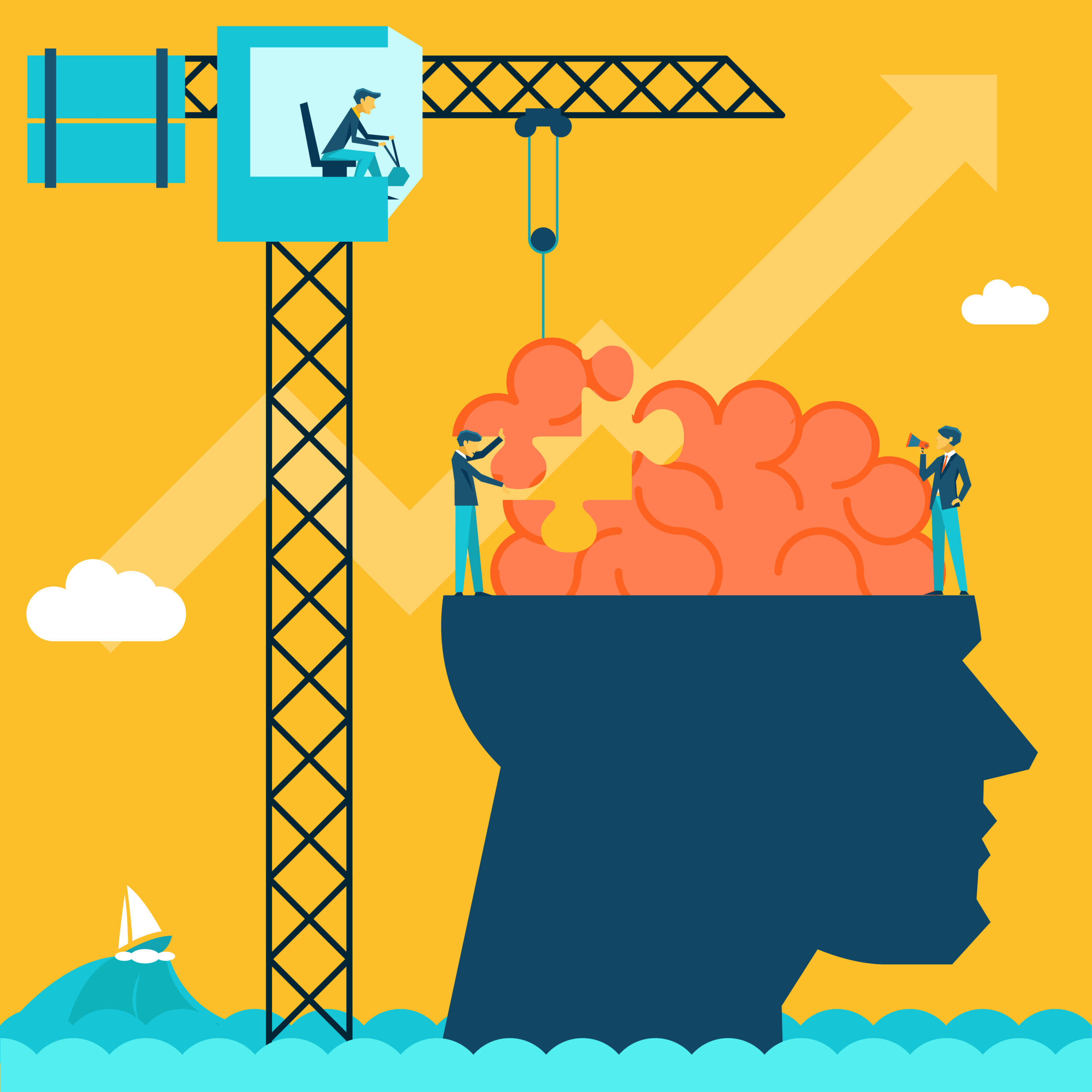What Are the Characteristics of an Entrepreneur?
Having an entrepreneurial mindset is crucial for success. Entrepreneurs are known for their unique blend of creativity, resilience, and strategic thinking. But what sets them apart? What are the key characteristics that enable entrepreneurs to innovate, adapt, and thrive in the face of uncertainty? In this article, we’ll explore the 11 powerful traits of an entrepreneurial mindset that can help you embrace your true nature.
“THE BEST WAY TO PREDICT YOUR FUTURE IS TO CREATE IT”.

IDENTIFY THE PRINCIPLE CHARACTERISTICS OF AN ENTREPRENEUR
1) VISIONARY THINKING
Entrepreneurs are known for their ability to think big and envision a future that others may not see. They have a clear sense of purpose and direction, which guides their decision-making and drives their innovation. Visionary thinking enables entrepreneurs to spot opportunities, anticipate trends, and create solutions that meet the needs of their customers.
2) ADAPTABILITY
Entrepreneurs are masters of adaptation. They’re able to pivot quickly in response to changing circumstances, whether it’s a shift in market demand, a new competitor, or an unexpected setback. Adaptability enables entrepreneurs to stay agile, innovate rapidly, and capitalize on new opportunities.
3) RESILIENCE
Entrepreneurship can be a rollercoaster ride of ups and downs. Successful entrepreneurs are resilient in the face of failure, rejection, and uncertainty. They’re able to bounce back from setbacks, learn from their mistakes, and keep moving forward with renewed energy and determination.
4) CREATIVITY
Entrepreneurs are known for their creativity and innovative thinking. They’re able to spot opportunities, identify patterns, and connect the dots between seemingly unrelated ideas. Creativity enables entrepreneurs to develop unique solutions, products, and services that meet the needs of their customers.
5) RISK TAKING
Entrepreneurs are willing to take calculated risks to achieve their goals. They’re able to weigh the potential rewards against the potential risks, and make informed decisions that align with their vision and values. Risk-taking enables entrepreneurs to innovate, experiment, and push the boundaries of what’s possible.
6) STRATEGIC THINKING
Entrepreneurs are strategic thinkers who are able to see the big picture. They’re able to analyze complex data, identify patterns, and develop plans that align with their goals and objectives. Strategic thinking enables entrepreneurs to make informed decisions, prioritize their efforts, and allocate their resources effectively.
7) PASSION & PURPOSE
Entrepreneurs are driven by a deep sense of passion and purpose. They’re able to connect with their “why,” and use it as a guiding force for their decisions and actions. Passion and purpose enable entrepreneurs to stay motivated, focused, and committed to their goals, even in the face of adversity.
8) CONTINUOUS LEARNING
Entrepreneurs are committed to continuous learning and self-improvement. They’re able to stay curious, seek feedback, and adapt to new information and technologies. Continuous learning enables entrepreneurs to stay ahead of the curve, innovate rapidly, and make informed decisions.
9) COLLABORATION & PARTNERSHIPS
Entrepreneurs are able to build strong relationships and partnerships with others. They’re able to communicate effectively, build trust, and collaborate with others to achieve common goals. Collaboration and partnerships enable entrepreneurs to access new markets, technologies, and expertise, and to accelerate their growth and success.
10) FLEXIBILITY & AGILITY
Entrepreneurs are able to stay flexible and agile in the face of changing circumstances. They’re able to pivot quickly, adjust their plans, and respond to new opportunities and challenges. Flexibility and agility enable entrepreneurs to stay competitive, innovate rapidly, and capitalize on new opportunities.
11) ACCOUNTABILITY & RESPONSIBILITY
Entrepreneurs are able to take ownership and accountability for their actions and decisions. They’re able to acknowledge their mistakes, learn from their failures, and take responsibility for their successes. Accountability and responsibility enable entrepreneurs to build trust with their customers, partners, and stakeholders, and to maintain a strong reputation and credibility.
WHAT ARE THE CHARACTERISTICS OF AN ENTREPRENEUR
1) INNOVATION
1- Ability to create new products, services, or processes.
2- Willingness to experiment and try new things.
2) RISK TAKING
1- Willingness to take calculated risks to achieve goals.
2- Ability to manage and mitigate risk.
3) PROACTIVITY
1- Ability to take initiative and drive change.
2- Willingness to anticipate and respond to opportunities.
4) ADAPTABILITY
1- Ability to adjust to changing circumstances.
2- Willingness to pivot and change direction when necessary.
5) RESILIENCE
1- Ability to bounce back from setbacks and failures.
2- Willingness to learn from mistakes and use them as opportunities for growth.
6) STRATEGIC THINKING
1- Ability to think critically and strategically.
2- Willingness to plan and prioritize to achieve goals.
7) CREATIVITY
1- Ability to think creatively and develop new ideas.
2- Willingness to challenge assumptions and conventional wisdom.
8) PASSION & MOTIVATION
1- Strong passion and motivation to achieve goals.
2- Ability to inspire and motivate others.
9) SELF CONFIDENCE
1- Confidence in one’s abilities and decisions.
2- Ability to trust oneself and take bold action.
10) CONTINUOUS LEARNING
1- Commitment to ongoing learning and self-improvement.
2- Ability to stay up-to-date with the latest trends and technologies.
11) NETWORKING & COLLABORATION
1- Ability to build and maintain relationships.
2- Willingness to collaborate and work with others to achieve common goals.
12) FLEXIBILITY
1- Ability to adjust plans and adapt to changing circumstances.
2- Willingness to pivot and change direction when necessary.
13) TOLERANCE FOR AMBIGUITY
1- Ability to operate in uncertain and rapidly changing environments.
2- Willingness to navigate ambiguity and uncertainty.
14) RESULTS ORIENTED
1- Focus on achieving results and meeting goals.
2- Ability to prioritize and manage time effectively.
15) INTEGRITY & ETHICS
1- Commitment to operating with integrity and ethics.
2- Ability to make tough decisions and stand by one’s values.
CHARACTERISTICS OF BUSINESS
A business is more than just selling something it’s about creating value and solving problems. Here are some key things that make up a business:
-
Deals with Goods or Services : Every business offers something people need, whether it’s a product like shoes or a service like haircuts.
-
Aims to Make a Profit : The main goal of most businesses is to earn money by providing value to customers.
-
Involves Risk : There’s always some uncertainty. A business might succeed or fail depending on market trends, customer needs, and competition.
-
Requires Regular Activities : Business isn’t a one-time thing. It involves ongoing work like buying, selling, marketing, or producing.
-
Satisfies Human Needs : Good businesses focus on helping people by solving their problems or making life better.
WHAT ENTREPRENEURIAL CHARACTERISTICS BETWEEN ENTREPRENEURS & NON ENTREPRENEURS?
1) MINDSET
1- Entrepreneurs: Have a growth mindset, embracing challenges and viewing failures as opportunities for growth.
2- Non-entrepreneurs: Often have a fixed mindset, preferring routine and stability.
2) RISK TOLERANCE
1- Entrepreneurs: Willing to take calculated risks to achieve their goals.
2- Non-entrepreneurs: Typically risk-averse, preferring predictable outcomes.
3) INNOVATION & CREATIVITY
1- Entrepreneurs: Encouraged to think creatively and develop innovative solutions.
2- Non-entrepreneurs: May prioritize established procedures and protocols.
4) PROACTIVITY
1- Entrepreneurs: Proactive, taking initiative and driving change.
2- Non-entrepreneurs: May be more reactive, responding to circumstances rather than creating them.
5) RESILIENCE & ADAPTABILITY
1- Entrepreneurs: Resilient and adaptable, able to pivot and adjust plans as needed.
2- Non-entrepreneurs: May struggle with adaptability and resilience in the face of uncertainty.
6) VISION & PURPOSE
1- Entrepreneurs: Driven by a clear vision and purpose, guiding their decisions and actions.
2- Non-entrepreneurs: May prioritize job security and stability over personal vision and purpose.
7) NETWORKING & COLLABORATION
1- Entrepreneurs: Often skilled networkers, building relationships and collaborations to drive growth.
2- Non-entrepreneurs: May focus on individual contributions rather than collaborative efforts.
8) CONTINUOUS LEARNING
1- Entrepreneurs: Embrace lifelong learning, seeking knowledge and skills to stay competitive.
2- Non-entrepreneurs: May rely on existing knowledge and experience rather than seeking new skills.
9) FINANCIAL MANAGEMENT
1- Entrepreneurs: Typically manage finances carefully, prioritizing cash flow and investment.
2- Non-entrepreneurs: May have less control over financial decisions, relying on a fixed salary.
10) AUTONOMY & INDEPENDENCE
1- Entrepreneurs: Value autonomy and independence, making decisions and taking ownership.
2- Non-entrepreneurs: May prioritize job security and stability over independence and autonomy.
These differences highlight the unique characteristics and mindset that entrepreneurs possess, enabling them to drive innovation, growth, and success.
Having an entrepreneurial mindset is not just about starting a business – it’s about embracing a way of thinking and being that enables you to innovate, adapt, and thrive in the face of uncertainty. By cultivating these 11 powerful traits of an entrepreneurial mindset, you’ll be better equipped to maximize your ability, achieve your goals, and make a meaningful impact in the world.



Pingback: TOP 10 ESSENTIAL ENTREPRENEURIAL SKILLS AND IMPORTANCE
Pingback: ENTREPRENEURIAL SPIRIT? HERE ARE 5 CHARACTERISTICS AND 5 WAYS TO BUILD ENTREPRENEURIAL SPIRIT
Pingback: what is entrepreneurial mindset-How To Develop
Pingback: importance of entrepreneurial mindset